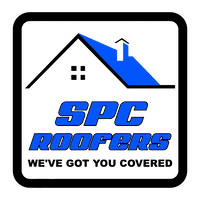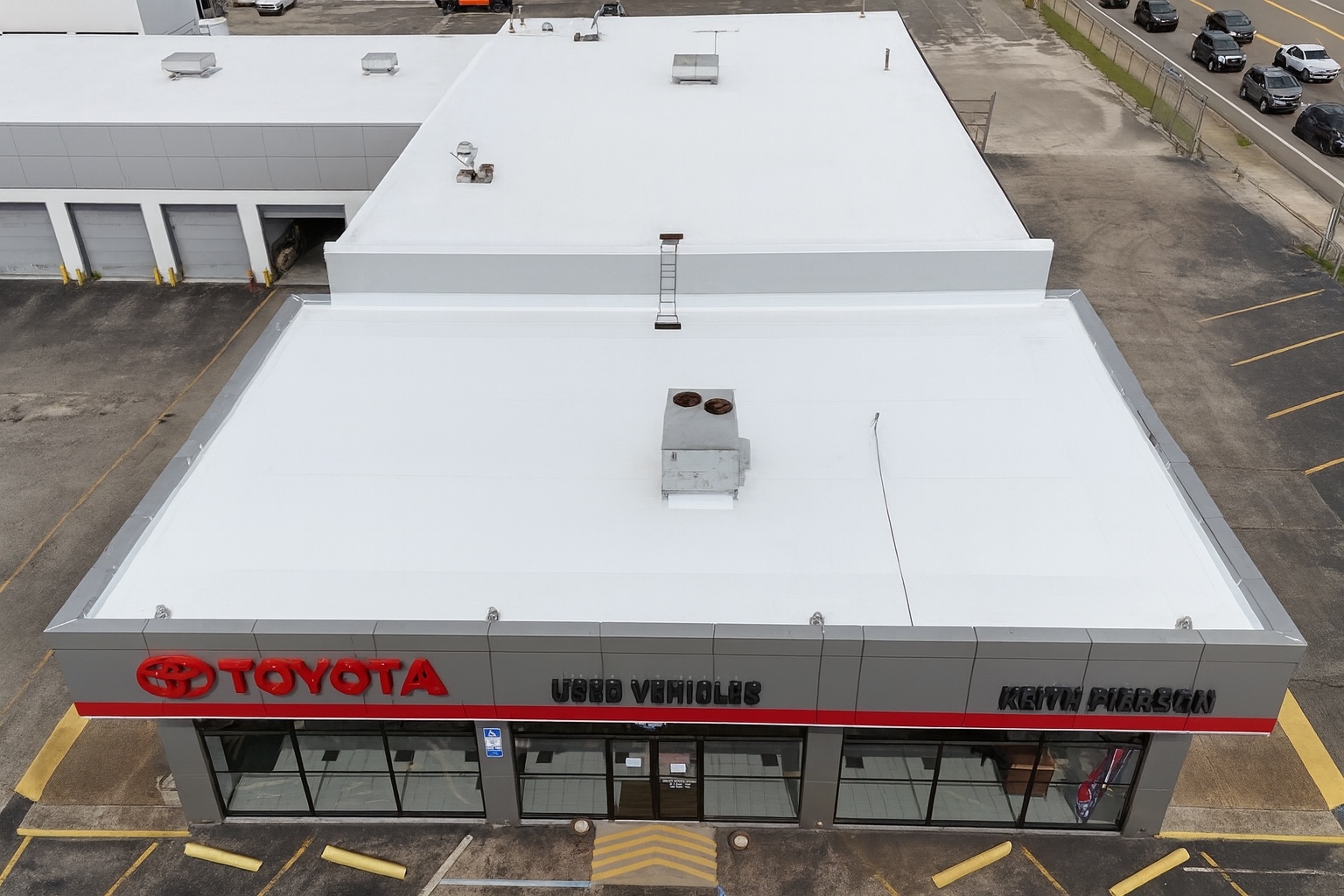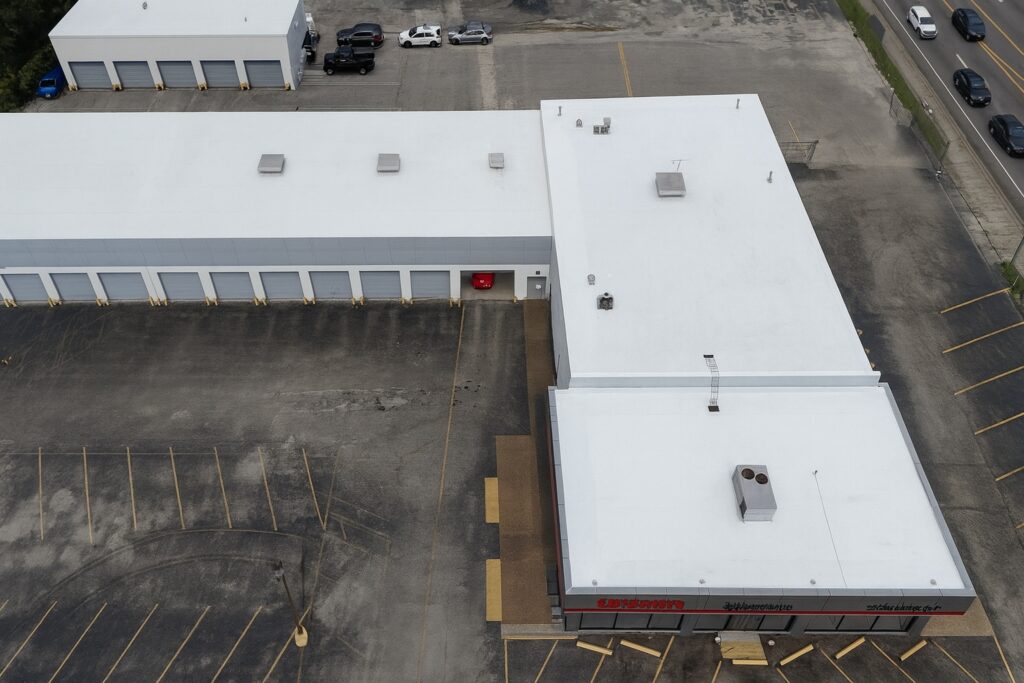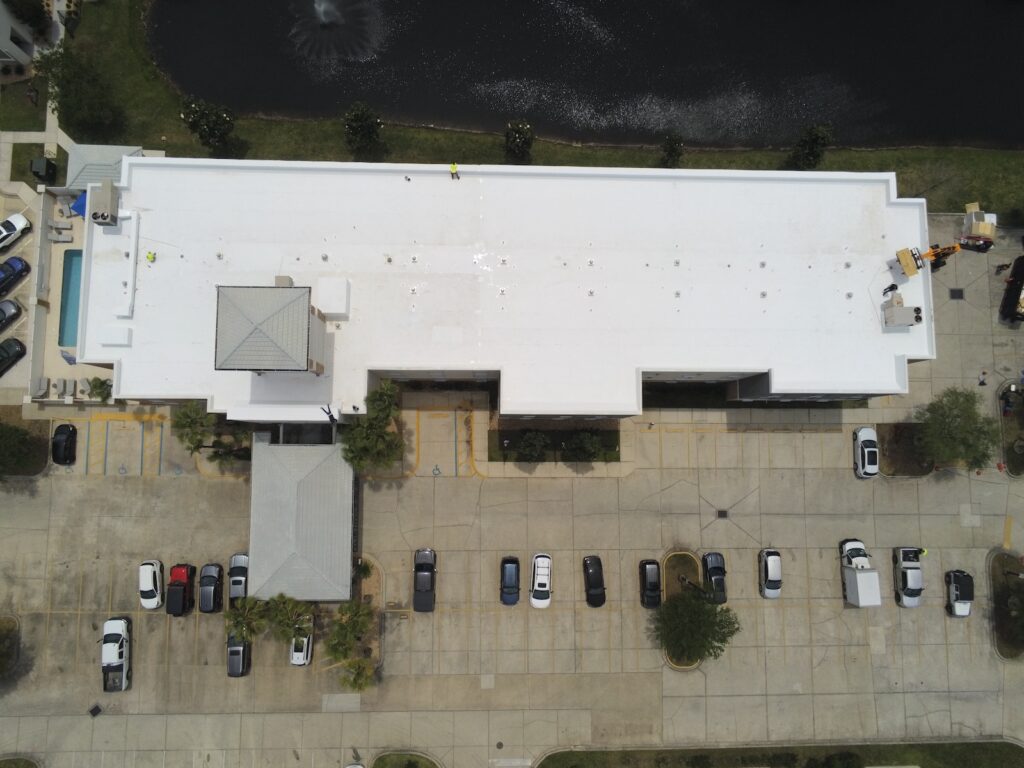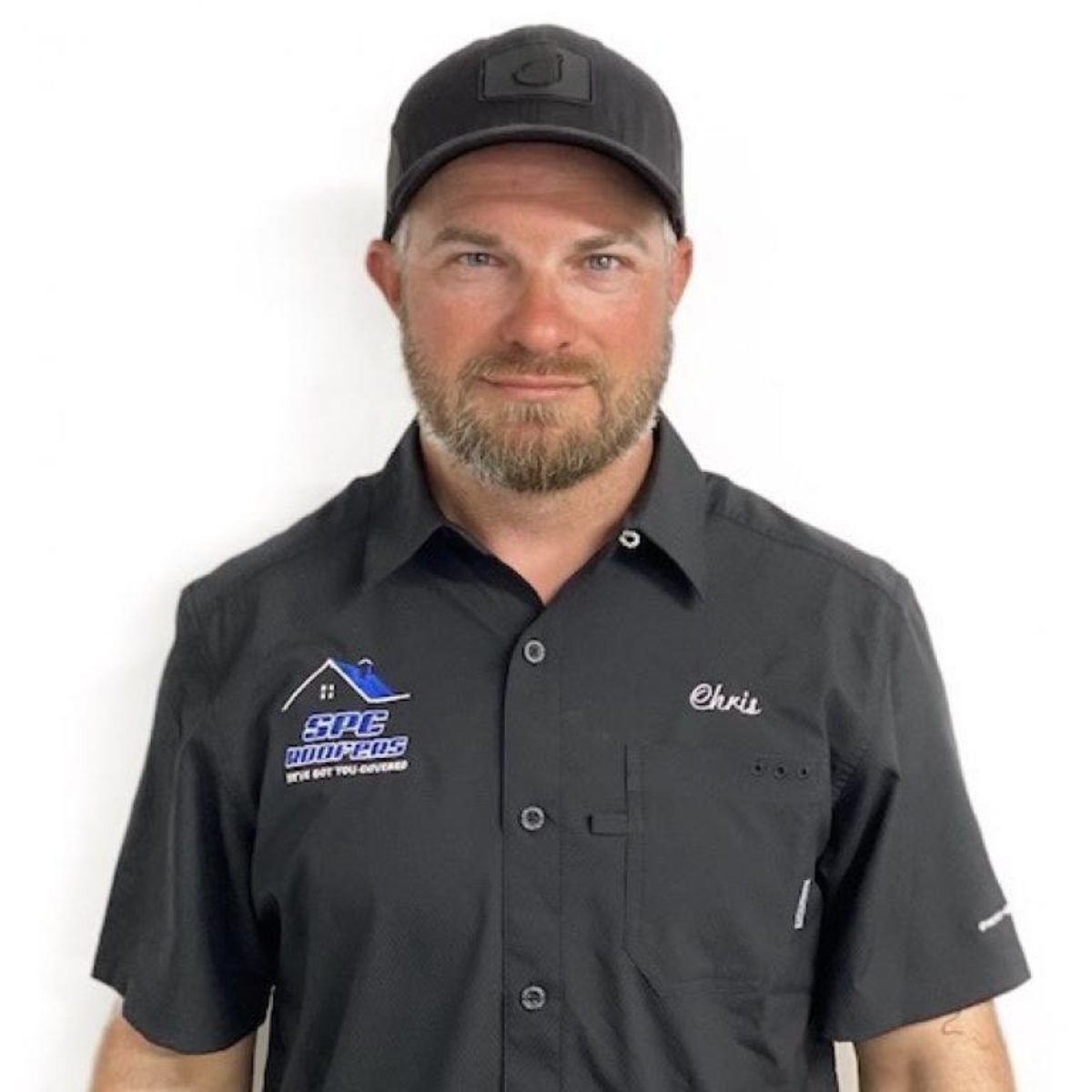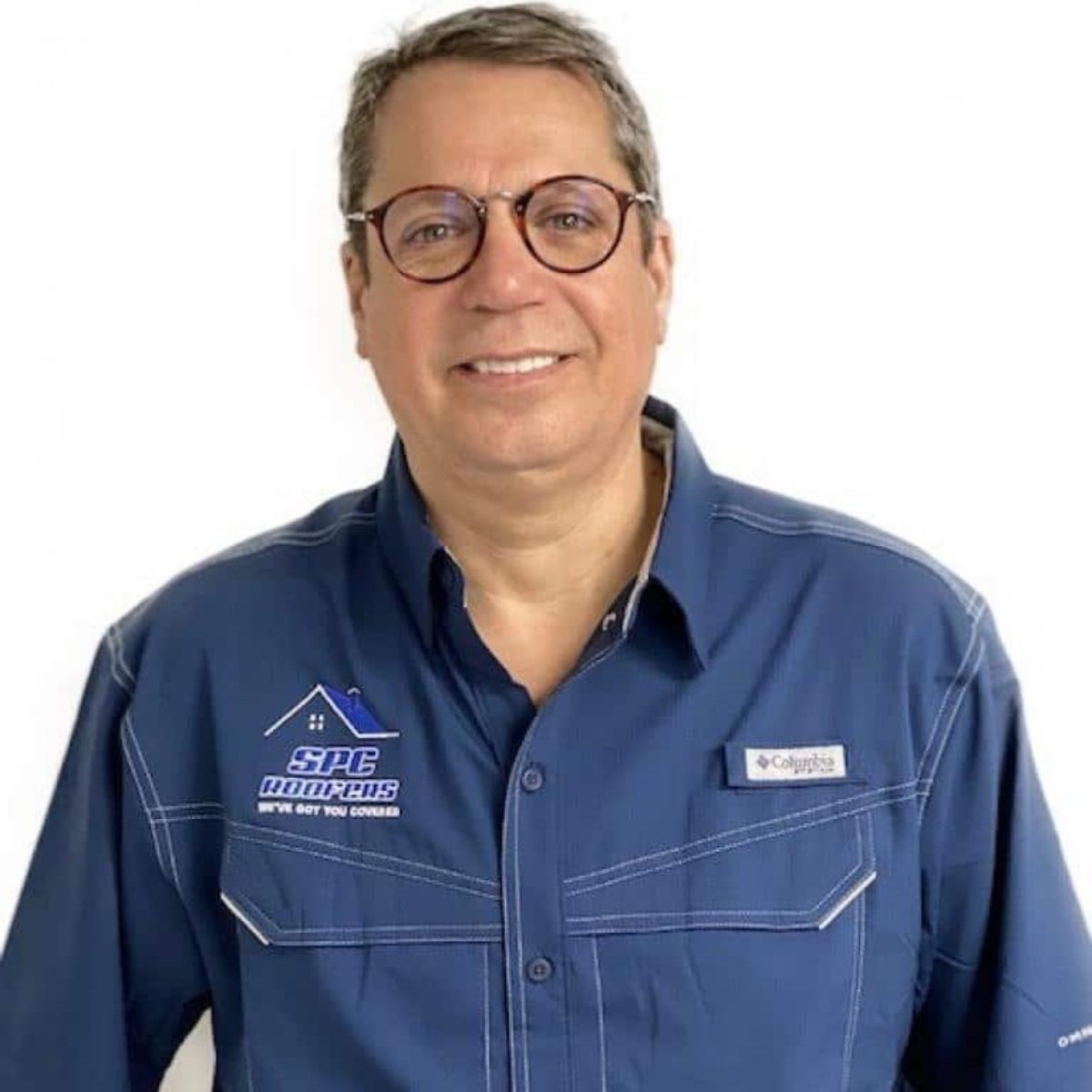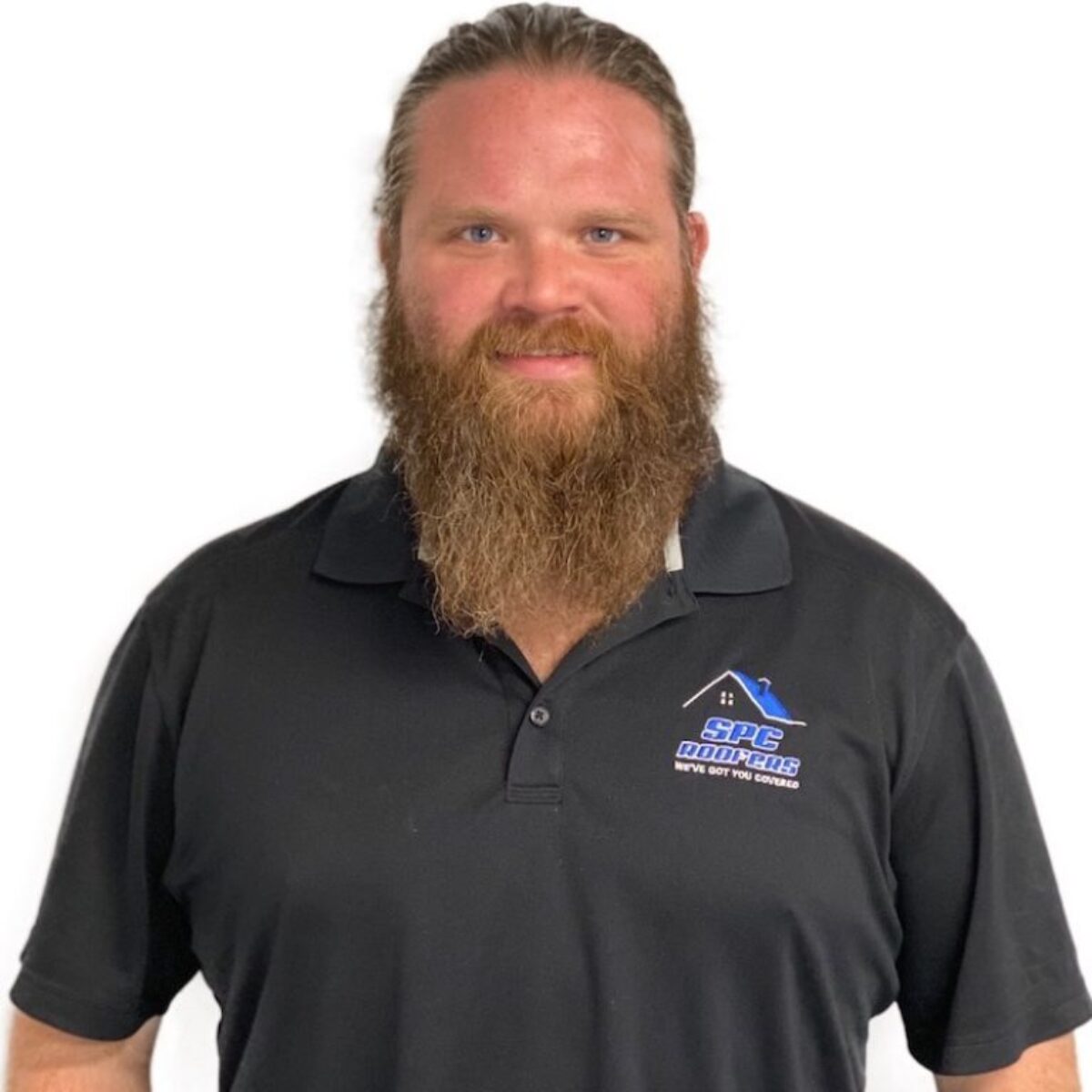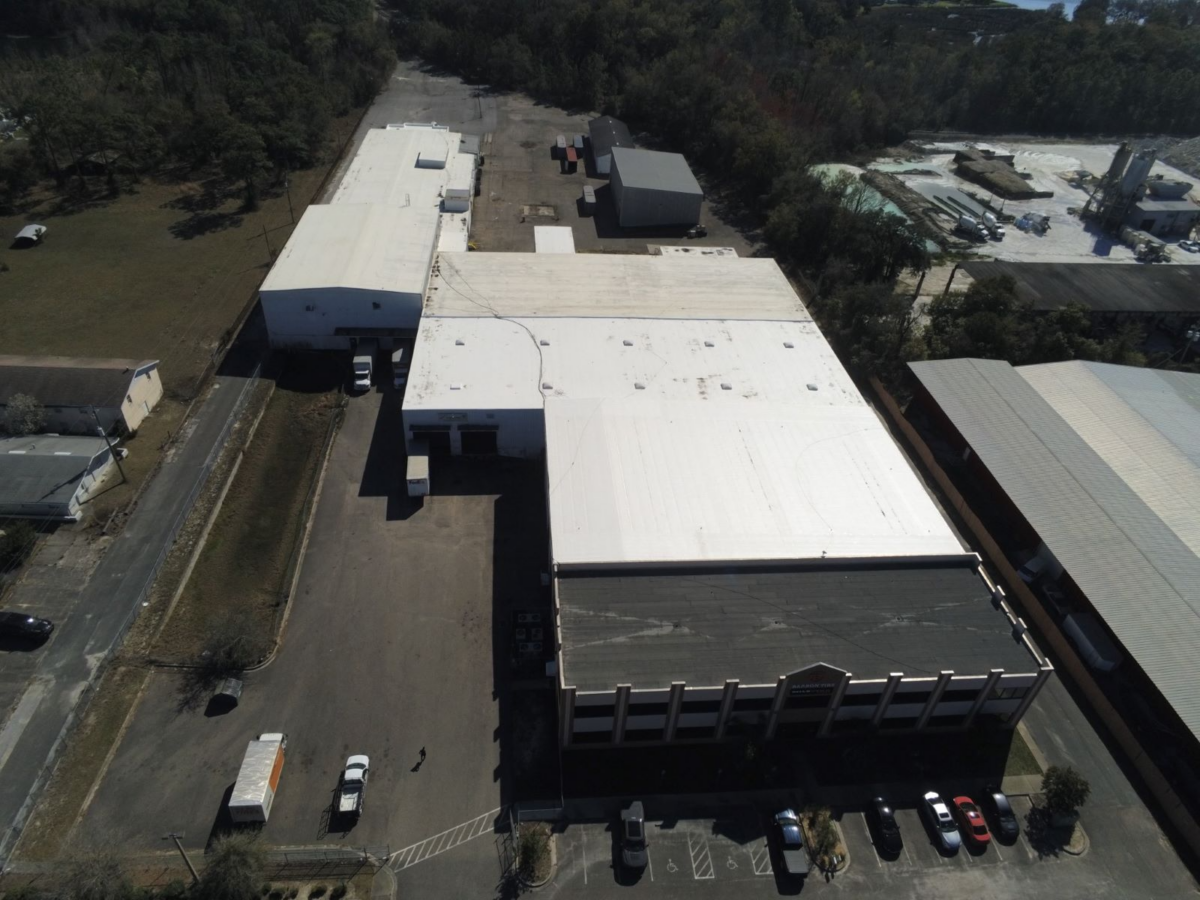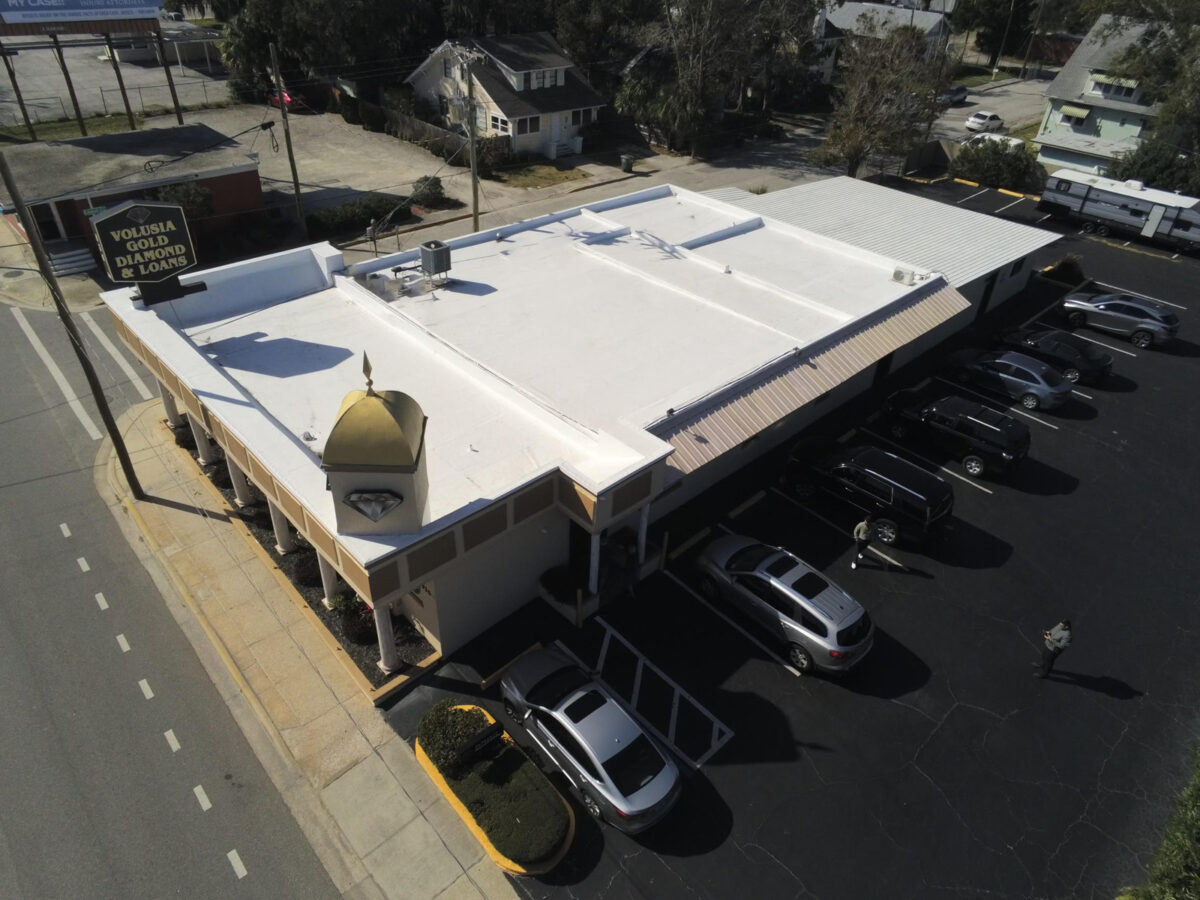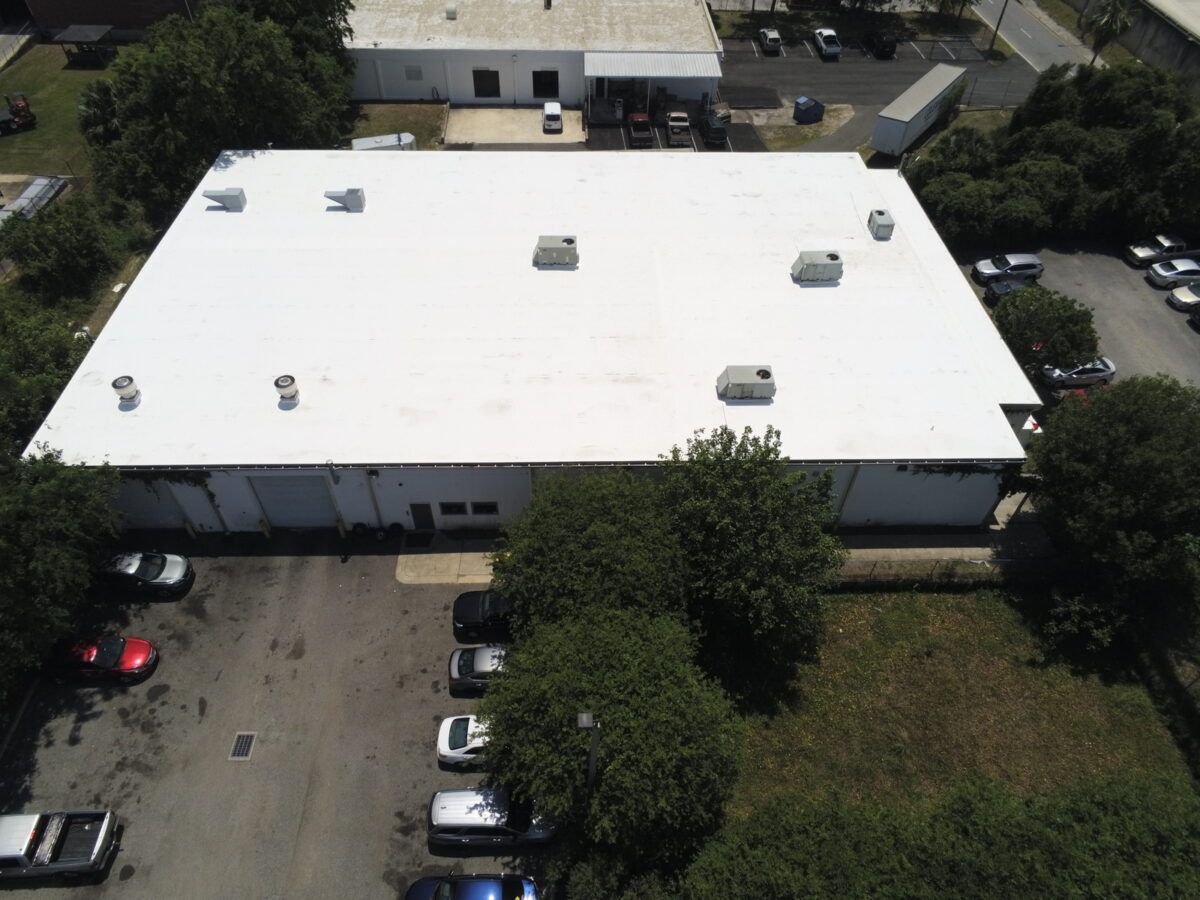Commercial TPO Roofing Services in Northeast Florida
At SPC Jacksonville Commercial Roofers, we specialize in providing top-quality TPO roof inspections, retrofits, and installations for businesses throughout Duval County, St. Johns County, and across Northeast Florida. Whether you own a warehouse in Jacksonville, manage a shopping plaza in St. Augustine, or operate an industrial facility in Ponte Vedra, our team delivers durable, energy-efficient TPO roofing solutions designed for Florida’s climate and your building’s unique needs.
Comprehensive TPO Roof Inspections
Regular roof inspections are the key to maintaining the performance and longevity of any commercial roofing system. Our certified technicians carefully evaluate every aspect of your roof, including:
-
Membrane condition, seams, and flashings
-
Signs of ponding water or poor drainage
-
Damage from storms, UV exposure, or heavy foot traffic
-
Mechanical or HVAC penetrations that can compromise the roof’s integrity
We provide detailed inspection reports and recommend the most cost-effective solutions—whether that means minor repairs, preventative maintenance, or a more extensive retrofit.
-
Local expertise serving Duval County, St. Johns County, and all of Northeast Florida
-
Decades of experience with commercial and industrial roofing projects of every scale
-
A proven record of successful TPO roof installations, retrofits, and emergency repairs
-
Commitment to high-quality workmanship, energy efficiency, and long-term value
Watch Our 1 Minute Overview For A Brief Intro To Our Roofing Capabilities
43 Years Of Commercial Roofing In Jacksonville, Florida!
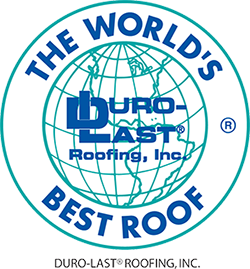


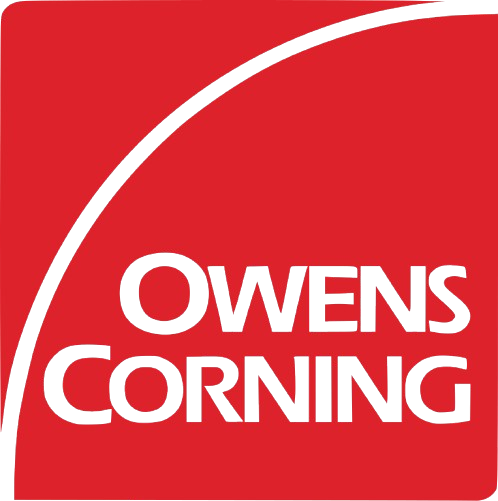
Best TPO Roofing Inspections, Roof Repair, and Replacement in Jacksonville, FL
TPO Roof Retrofits
For many commercial properties in Jacksonville, St. Johns County, and surrounding areas, a full roof replacement isn’t always necessary. A TPO retrofit system can be installed over your existing roof to extend its lifespan, improve energy efficiency, and minimize downtime for your operations. Retrofitting with TPO is especially beneficial for large industrial buildings, malls, and shopping centers where tearing off the old system may be disruptive and expensive.
Benefits of a TPO retrofit include:
-
Lower installation costs compared to full replacement
-
Minimal business interruption during installation
-
Immediate improvement in waterproofing and energy performance
-
Extended manufacturer warranties for peace of mind
New TPO Roof Installations
When your commercial roof has reached the end of its service life, SPC Jacksonville Commercial Roofers provides full TPO roof installations tailored to your property. TPO’s wide membrane sheets, heat-welded seams, and reflective surface make it one of the most durable and energy-efficient commercial roofing systems available today.
We work with property owners, facility managers, and developers across Northeast Florida to install TPO roofing systems that:
-
Reduce long-term cooling costs
-
Withstand high UV exposure, rain, and Florida’s humid climate
-
Require minimal maintenance while offering superior durability
-
Protect against leaks and structural water damage
Florida’s Commercial Roofing Authority. Here are 10 questions about: TPO, PVC, Coatings, & Retrofits
1. What is TPO roofing and why is it a strong choice for commercial buildings?
TPO (Thermoplastic Polyolefin) is a high-performance, single-ply roofing membrane engineered for flat and low-slope commercial roofs. It is widely used across Florida because it offers:
- Excellent long-term waterproofing
- Superior UV and heat resistance
- Energy-efficient “cool roof” performance
- Lower material and installation cost
- Strong resistance to chemicals, algae, and ozone
TPO is one of the fastest-growing commercial roofing systems in the country for good reason.
2. How does a TPO roof improve energy efficiency?
TPO is designed as a cool roofing system. Its white reflective surface:
- Reflects UV and infrared heat
- Lowers rooftop temperatures
- Reduces strain on HVAC systems
- Improves interior comfort
- Lowers cooling-related energy costs
In hot climates like Florida, energy savings can be substantial.
3. Is TPO an affordable option for commercial reroofs?
Yes. TPO offers one of the best cost-to-performance ratios in the commercial roofing industry. Savings come from:
- Lower material costs
- Fast, efficient installation
- Reduced labor and business downtime
- Long-term energy savings
- Straightforward maintenance
This makes TPO a top choice for warehouses, retail centers, industrial facilities, and large commercial buildings.
4. Can TPO be installed over my existing roof system?
Often, yes — depending on building codes and roof condition. A TPO recover is possible when:
- The deck is structurally sound
- Existing roofing is dry and stable
- A cover board or insulation is installed
- Moisture intrusion is not present
A recover installation is typically faster, less disruptive, and more cost-effective than a full tear-off.
5. How long does a TPO roof last, and what maintenance is required?
A professionally installed TPO system typically lasts 20–30+ years.
Maintenance includes:
- Routine inspections
- Clearing debris and maintaining drainage
- Checking seams, flashing, and transitions
- Addressing damage from foot traffic or equipment
Because its seams are heat-welded, TPO tends to need fewer repairs than older multi-ply systems.
6. How much can I save on utilities with a TPO roof?
Savings vary by building size, insulation, HVAC efficiency, and sun exposure — but many Florida properties see:
- 5–20% cooling cost reduction in peak months
- Lower rooftop heat loads
- Improved HVAC lifespan and efficiency
The hotter the climate, the greater the benefit.
7. What additional benefits does TPO provide?
TPO is valued for a wide range of advantages beyond energy savings:
• Highly durable — resists UV, heat, humidity, chemicals, and weathering
• Lightweight — suitable for large commercial structures
• Flexible — handles building movement well
• Environmentally friendly — recyclable and reduces heat-island effect
• Strong welded seams — superior leak resistance
It’s an excellent all-around system for commercial buildings across Florida.
8. Are there any considerations before choosing TPO roofing?
Yes — proper evaluation is important. Consider:
- Installation quality: seam welding and prep are crucial
- Equipment layout: walk pads may be needed around service areas
- Drainage: ponding water reduces longevity
- Membrane thickness: 60–80 mil options offer different warranties
- Climate: TPO performs best in warm regions (which makes it ideal for Florida)
A qualified commercial roofing contractor should inspect your roof and recommend the best system.
9. Is TPO a good roofing system for Florida’s climate?
Yes — TPO is one of the top-performing systems in hot, humid, and storm-prone environments like Florida.
Benefits in markets such as Jacksonville, Orlando, Tampa, Miami, and the Gulf Coast include:
- High heat reflectivity
- Reduced cooling costs
- Excellent UV and salt-air resistance
- Strong seam performance in high-wind events
- Mold and algae resistance in humid climates
Few roofing systems are better suited to Florida commercial buildings.
10. Why choose SPC Commercial Roofers for your TPO roofing project?
SPC Roofers is a Florida commercial roofing leader with decades of experience installing high-performance TPO systems for businesses, warehouses, and large commercial properties.
What sets SPC apart:
Commercial Roofing Specialists
Dedicated teams trained specifically for flat and low-slope commercial systems.
Certified TPO Installation Crews
Expert welding, detail work, insulation installation, and quality control.
Florida-Wide Expertise
Experience with Florida building codes, wind zones, coastal conditions, and storm resilience.
Free Inspections & Detailed Reports
Moisture scans, core sampling (when needed), photo documentation, and full condition analysis.
Honest, Transparent Recommendations
We explain reroofing, recover, retrofit, and coating options clearly.
Family-Owned & Trusted Since 1978
A Florida-rooted company built on quality, integrity, and long-term client relationships.
Whether you’re looking to schedule a routine TPO inspection, explore the benefits of a retrofit system, or install a new TPO roof on your commercial property, SPC Jacksonville Commercial Roofers is your trusted partner. We are proud to help businesses across Jacksonville, Ponte Vedra, St. Augustine, and the greater Northeast Florida region protect their properties with reliable and efficient commercial roofing solutions.
Meet Our Team
Over 100 Years of combined commercial roofing experience. Serving Jacksonville since 1978.
Request a Free Roofing Estimate Today!
Our Office
1845 University Blvd
Jacksonville, FL 32211
Phone
Hours of Operation
Mon – Fri: 9:00am – 4:00pm
Weekends: By appointment
Why Choose SPC Commercial Roofers?
Contact our roofing contractors today for your free roofing appraisal!
Here Are Some Frequently Asked Questions Regarding Benefits And Applications For TPO Roofs
1. What is TPO roofing and why is it ideal for commercial properties?
TPO (Thermoplastic Polyolefin) is a single-ply membrane roofing system known for its durability, energy efficiency, and cost-effectiveness. It’s particularly well-suited for flat or low-slope commercial roofs—including warehouses, malls, and shopping centers—because of its superior reflectivity, strong seam integrity, and adaptability to large expanses.
2. What are the key benefits of TPO roofing?
- Energy Efficiency & Heat Reflectivity
TPO membranes, commonly in white or light hues, reflect UV and solar radiation, helping reduce heat gain and lower cooling costs. - Fire, UV, and Pollutant Resistance
TPO offers excellent resistance to fire, ultraviolet degradation, airborne bacteria, and industrial pollutants—enhancing longevity and performance in harsh environments. (jacksonvillecommercialroofers.com) - Durability & Flexibility
The material resists mold, rot, tears, and damage. Its flexibility accommodates building movement and thermal expansion/contraction without compromising the membrane. - Strong, Seam Integrity
Seams are heat-welded to form watertight and durable seals—far more reliable than adhesive or tape-based systems. - Cost-Effectiveness
TPO delivers long-term value through energy savings, reduced repair frequency, and lower initial installation costs compared to more costly materials.
3. Why choose TPO for warehouses and large industrial buildings?
These expansive structures benefit from TPO’s quick and clean installation, seamless coverage (thanks to wide sheets with fewer seams), and immediate reflectivity that helps reduce cooling loads. The robustness of TPO also stands up to potential mechanical wear and environmental stress typical in industrial settings.
4. Is TPO suitable for malls and shopping plazas?
Absolutely. Flat-roofed malls and plazas can harness TPO’s energy-reflective properties to lower interior temperatures, helping HVAC systems operate more efficiently. Its aesthetic flexibility (white, grey, tan, and customizable colors) also allows for design cohesion with architectural themes.
5. How is TPO installed on large flat commercial roofs?
Typical Installation Steps:
- Inspection & Surface Prep – Existing roofing and deck conditions are assessed to ensure a clean, stable base.
- Insulation Layer (as needed) – Insulation such as Polyiso, EPS, or XPS may be installed for thermal efficiency.
- Membrane Placement – TPO sheets are positioned and fastened (mechanically or adhesively) over the surface.
- Seam Welding – Hot-air welding creates watertight, durable seams.
- Flashing & Details – Areas around drains, vents, and transitions are carefully sealed.
- Final Inspection – A thorough check for seam integrity, flashings, and overall installation quality.
6. What is the typical lifespan of a TPO commercial roof?
TPO roofs generally last 20 to 30 years, depending on membrane thickness, installation quality, and maintenance—some may last even longer with care.
7. What signs indicate a TPO roof needs repair or replacement?
Look for the following warning signs:
- Ponding Water – Standing water can degrade the membrane and underlying structure.
- Membrane Blistering or Bubbling – Often caused by trapped moisture or air.
- Cracks or Punctures – From foot traffic, mechanical damage, or weather stress.
- Seam Separation – Compromises watertight integrity.
- Deteriorated Flashing – Especially around HVAC units, drains, or penetrations.
Regular maintenance and prompt attention to these issues help preserve roof lifespan.
8. How energy-efficient is TPO roofing—and what savings can businesses expect?
TPO’s reflective surface can deflect up to 80% (or more) of sunlight, reducing rooftop heat accumulation and decreasing cooling loads. In sunny climates like Jacksonville, energy savings for commercial properties can range from approximately 10% to 30%, depending on roof size and usage.
9. How does TPO compare with other commercial roofing materials?
- TPO vs. PVC
Both are reflective and durable; PVC offers slightly higher chemical resistance, but TPO is typically more budget-friendly. - TPO vs. EPDM
EPDM is usually dark (leads to heat absorption) and less energy-efficient. TPO’s reflectivity makes it a cooler, better-performing choice. - TPO vs. Built-up Roofing
Built-up systems are heavier and more labor-intensive. TPO’s lightweight, welded-seam structure offers fewer seams and simpler installation.
10. How should a TPO roof be maintained?
Best practices include:
- Annual visual inspections (especially after storms)
- Cleaning debris to prevent ponding and damage
- Promptly repairing minor damage, like punctures or loose seams
- Monitoring flashings and terminations for wear
Proper maintenance reduces the likelihood of major repairs and extends roof life.
11. What membrane thicknesses and colors are available for TPO?
Standard TPO thicknesses include 45-mil, 60-mil, and 80-mil options. Common colors are white, gray, and tan, and many manufacturers also offer custom colors for branding or aesthetic purposes.
12. Why is TPO hot-air welding better than adhesives or tar-based systems?
Heat-welded seams create bonds that often become stronger over time, resisting UV degradation far better than tar-based or adhesive systems, which can crack or loosen. (jacksonvillecommercialroofers.com)
13. Why should clients choose SPC Jacksonville Commercial Roofers for TPO installations?
As the trusted local expert, SPC Jacksonville Commercial Roofers offers:
- Proven TPO expertise for large-scale commercial properties
- Fast, clean installation—perfect for operational warehouses, malls, and plazas
- Energy-saving, long-lasting solutions designed for Florida’s climate
- Durable, heat-welded seams that require minimal maintenance
- Skilled workmanship and consistent post-installation support
